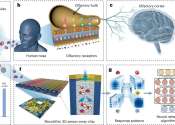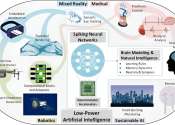Researchers develop biomimetic olfactory chips to enable advanced gas sensing and odor detection
A research team led by the School of Engineering of the Hong Kong University of Science and Technology (HKUST) has addressed the long-standing challenge of creating artificial olfactory sensors with arrays of diverse high-performance ...
Mar 28, 2024
0
18









